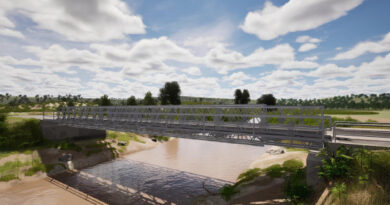IAEA Commends Zambia’s Nuclear Security, Urges More Training and Coordination
A team from the International Atomic Energy Agency (IAEA) has concluded a successful International Nuclear Security Advisory Service (INSServ) mission to Zambia, commending the country’s strong commitment to nuclear security and recommending enhanced capacity building and coordination among national stakeholders.
The mission, held from 14 to 23 July 2025 at Zambia’s request, assessed the national nuclear security framework for managing nuclear and other radioactive materials out of regulatory control (MORC). It was hosted by the Radiation Protection Authority (RPA) and led by Samer Quran, Director of the National Centre for Nuclear and Radiological Security at Jordan’s Energy and Minerals Regulatory Commission.
The expert team included specialists from Argentina, Egypt, Jordan, Norway, the United States, and two IAEA staff. Their work focused on Zambia’s systems for preventing, detecting, and responding to criminal or unauthorized activities involving nuclear or radioactive materials that are misplaced, stolen, or improperly stored.
“The mission confirmed Zambia’s significant progress in nuclear security,” said Quran. “Our team found a strong national commitment and recommended further strengthening multi-agency coordination and tailored training programmes to build human capacity.”
Zambia’s nuclear security infrastructure was examined through site visits to key locations such as Kenneth Kaunda International Airport, Kazungula border post, Kapiri-Mposhi Railway Station, and the RPA Inland Office in Livingstone. Meetings were also held with officials from the Office of the President, Cabinet Office, and multiple ministries and national agencies.
“The INSServ mission marks a significant milestone in Zambia’s journey toward building a resilient nuclear security regime,” said Boster D. Siwila, Executive Director of the RPA. “The recommendations will guide our next steps in protecting the nation from risks associated with uncontrolled radioactive materials.”
IAEA’s Division of Nuclear Security Director Elena Buglova praised the mission’s impact, noting it builds on Zambia’s previous engagement with the IAEA, including the International Physical Protection Advisory Service in 2023.
Experts identified best practices in information security and insider threat mitigation, urging Zambia to continue leveraging IAEA assistance for training, joint exercises, and policy development.
The IAEA will deliver a final report within three months, outlining detailed findings and guidance to further support Zambia in strengthening its nuclear security regime.



